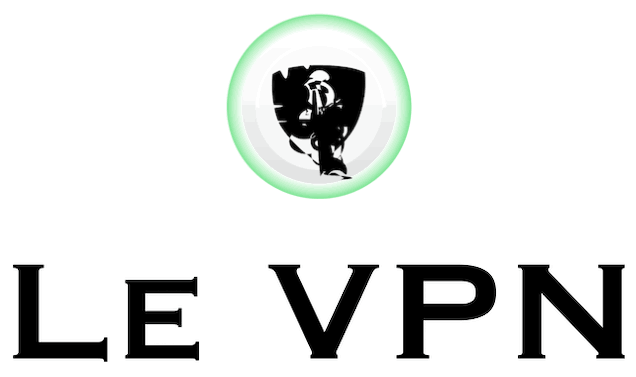CactusVPN Review (2024)
With 20 servers in 9 locations, CactusVPN might not boast the largest network, but the cross-platform software is dead-simple, the security is watertight, the speeds are very decent, and the prices are inviting. If budget is tight and value is a priority, you may want to give it a chance.
What we like
- 24-hours free trial
- 30-day money-back guarantee
- No logs and no bandwidth caps
- OpenVPN, L2TP/IPSec, SSTP, SoftEther, PPTP
- IKEv2 and P2P allowed
- 256-bit encryption
- Kill switch, SmartDNS, kill apps
- Up to 5 simultaneous connections
What we don't like
- Does not unblock Netflix
- 20 servers in 9 locations
- May share your registration information in response to subpoenas
Features
CactusVPN is a young Moldova-based company founded in 2011 as a “family business.” Sounds cozy and the About page says that they’ve refused offers to sell it in the past.
CactusVPN does an excellent job of making website and app navigation a breeze for the noobs. Both the client area and the desktop/mobile apps are intuitive and easy to use. From the get-go, the dashboard points the finger at your login credentials for the VPN and a separate key for the Smart DNS. Similarly, the desktop and the mobile apps come with two login tabs – one for the VPN, and another for the Smart DNS.
Both tabs come with basic settings and a few advanced tweaks you can toggle. I loved the simplicity and accessibility.
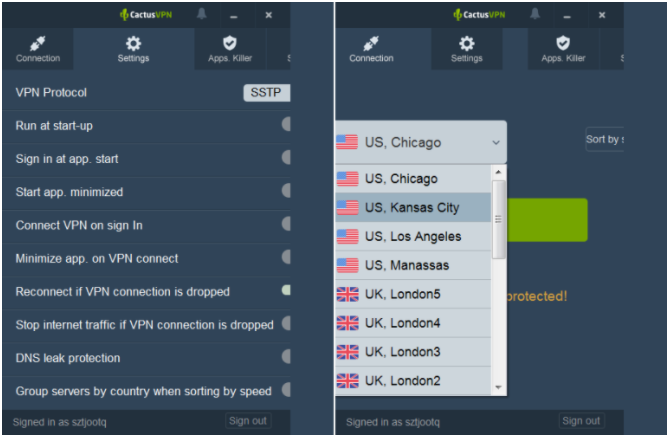
You can set up CactusVPN on Windows, MacOS, Android, and iOS. I was relieved the Android app came with OpenVPN embedded – no need to mingle with additional config files.
The settings allow you to sort and choose servers, define the auto-start options, enable a DNS leak, a kill switch, and an app switch, which comes as a standalone feature and lets you pick which apps get shut down if the connection drops. You can also choose the protocol while the dashboard has plenty of easily accessible guides, keys, proxy settings, and other perks for the geeks. The desktop and the mobile apps, however, are visibly geared toward the noobs.
The technical details look good, too, with an ample choice of protocols including OpenVPN and 256-bit encryption.
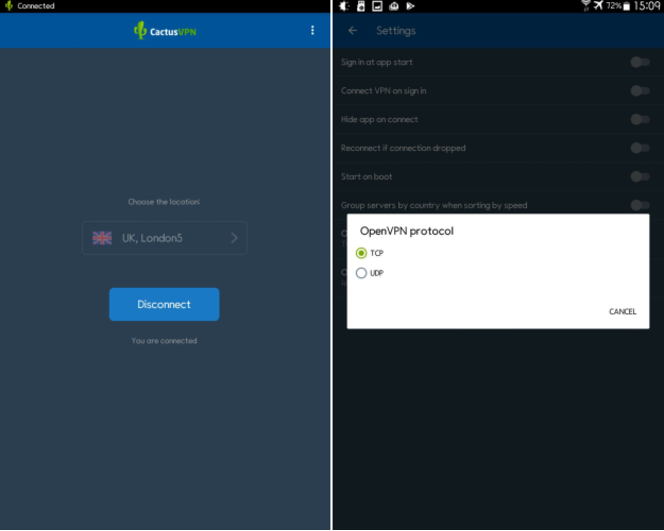
Pricing
CactusVPN has three plans — 1 month ($9.99 per month), 3 months ($23.99), and 1 year ($69.99). These plans get you all 20 servers, VPN, and Smart DNS – wrapped in one. If that’s not generous enough, all plans come with a 30-day money-back guarantee with restrictions.
On the bright side, the one-day free trial has no annoying limitations, and you can test the VPN, the Smart DNS, and all the available servers without bandwidth caps. You don’t need to submit your payment details until you decide to subscribe, and you can pay via PayPal, credit/debit card, PayPro, and Bit-Pay. You can’t use a disposable email address to sign up.
Tests
CactusVPN performed remarkably well in synthetic speed tests using both the US and the UK servers, with only a minor latency increase. Here’s my speed test before CactusVPN:
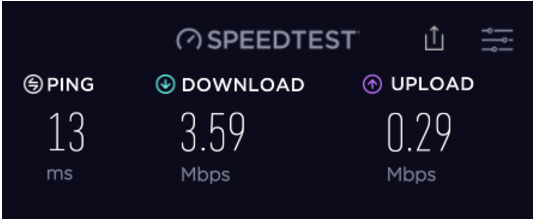
and here are two results from my test while connected to the US and the UK server:
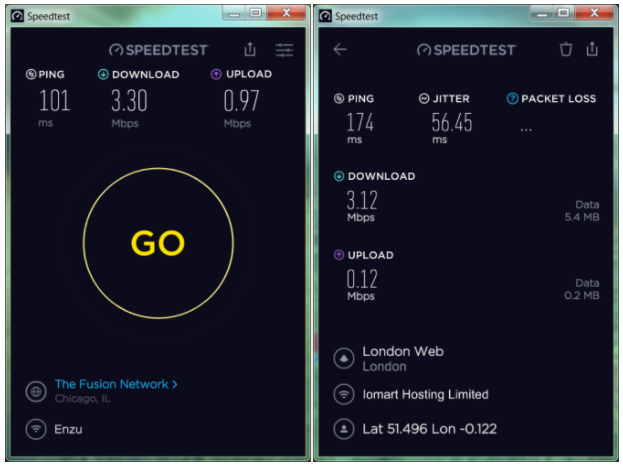
The security tests showed no issues – no WebRTC, DNS, or IPv6 leaks:
The client displayed a minor lag while connecting/disconnecting but barely enough to notice. The overall performance was excellent, and the speeds didn’t plunge.
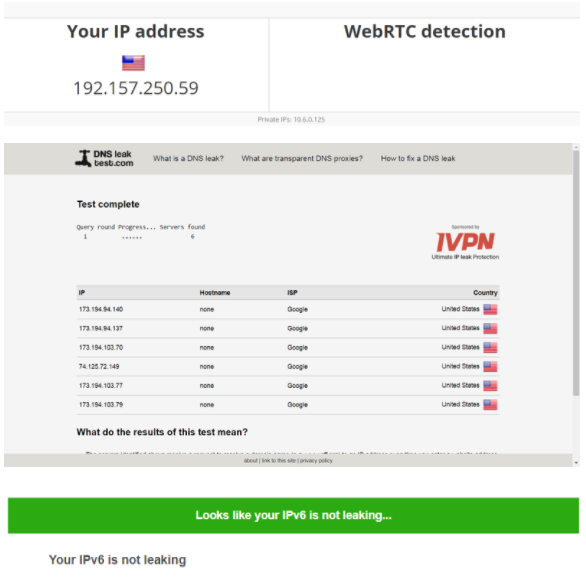
CactusVPN keeps a list of the streaming services their Smart DNS can unblock. It’s an impressive – and convenient – list you can sort by platform (Windows, Apple TV, Roku, Samsung Smart TV, XBOX, and the like), but Netflix is not on it.

Privacy
Their Privacy Policy and ToS are a mixed bag of the good and the not-really. On the one hand, they don’t keep logs. On the other, there’s a degree of monitoring going on so that they can shut down your connection if you abuse the service. There are roughly two scenarios that can lead to this – you consume so much it affects others, or you do something that can get the company in trouble with the authorities. They’re based in Moldova, so I bet it doesn’t happen all that often.
Another nag about CactusVPN is that they may share your registration or payment details in response to subpoenas and court orders, this sounds a bit off-putting if you’re privacy-paranoid.
Security
Security-wise, CactusVPN offers a plethora of protocols, robust encryption, the embedded and customizable kill switch, app kill, and DNS leak protection.
Final thoughts
CactusVPN might not be the winner on all parameters, and it has its limitations like the short list of servers and no love for Netflix. But it performs remarkably well, offers great speeds and a fairly decent list of unblocked streaming services. Top it off with the ease of use, the cross-platform client, the kill switch and the affordable plans, and looks like a bargain.


